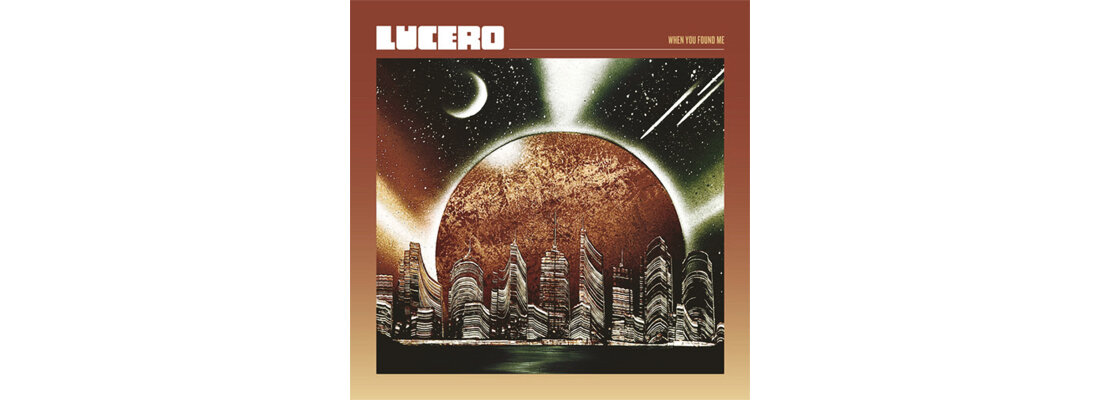Allow me to set the scene.
A couple walk into a medium-sized rock club and get a drink. There’s a thick tension in the air. A large group of sweaty, shirtless, jean & baseball cap-wearing, PBR-swilling young men are up front yelling at each other, and, for some reason, the empty stage. “Ok let’s hang back.” she says. “Halfway through the first song a big fight will break out, the meatheads will either get kicked out or cower to the sides to avoid that, and we’ll get right up front.” The lights go down. Ben Nichols squints from the glare while he shields his eyes with one hand and raises a shot glass overflowing with Jameson’s in the other, smiling at the crowd as he throws it back with a slight wince. He shoots lead guitarist Brian Venable a nod and they break into one of the sing-along anthems from their fourth album Nobody’s Darlings. By the end of the first chorus there are punches thrown, the bouncers move in, and by the time the guitar solo ends, she’s up front, with her friends, singing along, safe from the quelled melee. Clockwork. I’m told it wasn’t like that everywhere, but for a solid half-decade it sure was in Detroit, Kalamazoo, and Toledo. Those days seem to be gone, and I am not complaining.
Lucero isn’t that band anymore. It’s ok to miss what they were, I do. But people grow up. They get tired of singing song after song about drinking whiskey with their friends for 2 hours a night, every night, from coast to coast. It was fun, hell - it still is, but good bands evolve and there will always be those left behind, grumbling about the good old days, when they were “my” band. Their new album When You Found Me, isn’t going to win any of those people back, but they’re the ones missing out.
When You Found Me finds Lucero breaking new ground in what is easily their most ambitious album to date. It plays like a landscape of a well-made movie, shot in the western states, mostly at dusk under cloudy skies. Roy Berry’s drums are conservative, keeping a tribal or tight-hi-hat back-beat under the palm-muted rhythm guitar of Nichols, allowing the verses to breathe under the vocals until the choruses break in with more punch. The textures created by Venable and Rick Steff (piano/synthesizers) play off the vocals in a way that back-up vocals or harmonies might, but Lucero has never had harmonies. There’s a comfortable confidence here that they seem to hit every couple records and it suits them well.
L to R: Subblefield, Steff, Nichols, Berry, Venable - Lucero
“Coffin Nails” was an early favorite, with it’s The Dirty South-era Patterson Hood-like verse vocals carrying the tune into a catchy chorus that’s a bit less PH but would still fit nicely on that DBT record. The next song “Pull Me Close Don’t Let Go” is maybe the biggest departure from their traditional sound, with a droning synth intro that builds into a more Lucero-like crescendo. On its own it’s probably not a favorite, but it fits in with the flow and feel of the album perfectly. Another song with an 80s goth-pop feel is “Good as Gone”, built around a thumping octave John Stubblefield bass line that made me look up to see if 120 Minutes wasn’t on the TV. There’s no electronic drums or giant Aqua Net hair here – it’s real rock and roll delivered with a raspy voice and no connection to Ian McCulloch or Robert Smith.
“The Match” starts off with a flowing acoustic guitar and carries a melody that takes Nichols’ voice on an unexpected ride, and “Back in Ohio,” anther favorite, is probably the most rock and roll romp on the record - the band sounding like The Replacements, with a main verse riff and vocal line similar to the `mats “Message to the Boys” comeback song. It’s Steff’s piano that gives you all the feels on this one – taking the between-verse vamps on a rockabilly stroll into the next parts. The title track closes the album with some of the strongest lyrics and a great chorus turnaround, and fans of The Church might notice some similarities to the feel and melody of their “Under the Milky Way” song (as pointed out by some friends who know The Church better than I).
Reaction to this record has been polarizing, and reaction to the reaction even more so. It might not happen immediately, but I think in time people are going to look back on this one as a masterpiece, a real dive into new waters that shows a level of mature songwriting and dynamic playing that tops anything they’ve done to date. Initial fan responses to Springsteen’s Nebraska or The Clash’s Sandinista! come to mind. Calm down people, spend some time with the songs, let it sink in. Every listen brings out nuances missed before and you’re not gonna get on the first or second spin. The reward with this record comes with repeated plays.
It’s a damn shame we can’t seem these songs played live. I could imagine a tour where it’s played front to back. I don’t think the shirtless, frat contingent will be starting any fights up front when the set kicks off, but that’s ok, we’ll hang back a bit and take it all in.
Jeremy Porter lives near Detroit and fronts the rock and roll band Jeremy Porter And The Tucos. Follow them on Facebook to read his road blog about their adventures on the dive-bar circuit.
www.thetucos.com
www.facebook.com/jeremyportermusic
www.rockandrollrestrooms.com
Twitter: @jeremyportermi | Instagram: @onetogive & @jeremyportermusic






